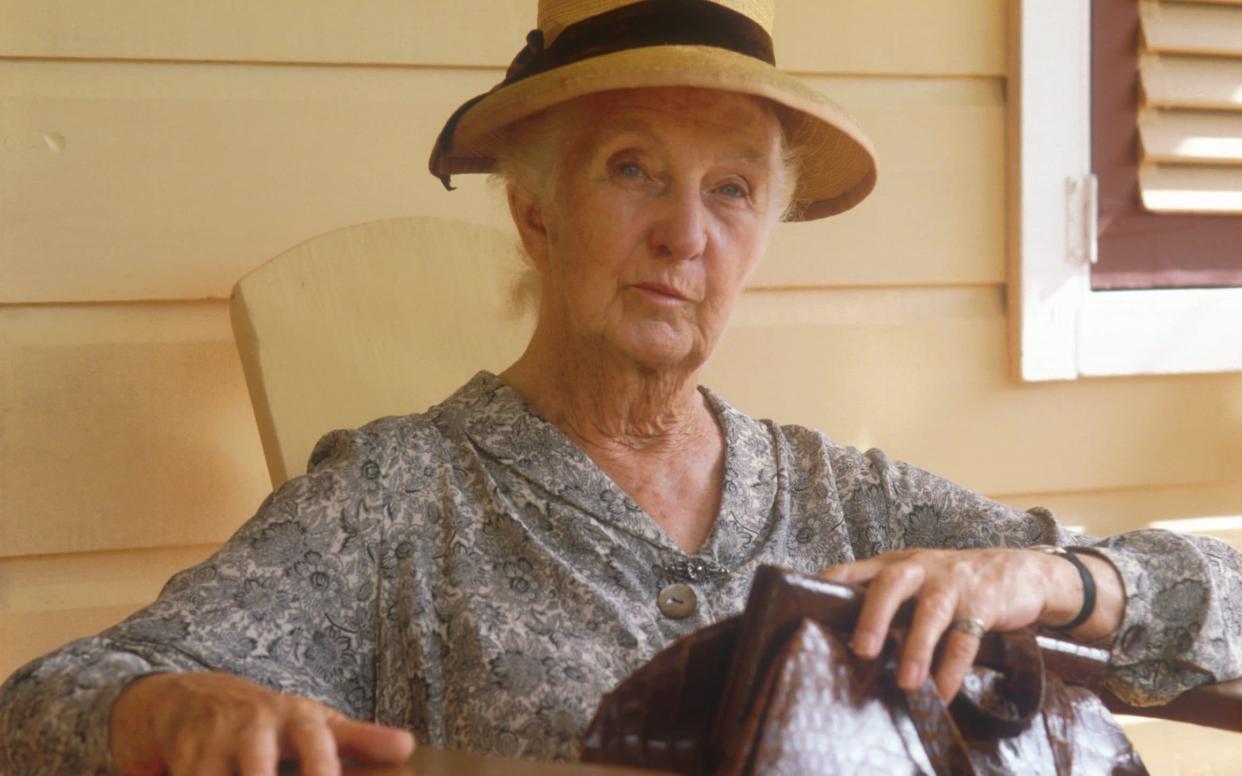Agatha Christie classics latest to be rewritten for modern sensitivities

- Oops!Something went wrong.Please try again later.
Agatha Christie novels have been rewritten for modern sensitivities, The Telegraph can reveal.
Poirot and Miss Marple mysteries have had original passages reworked or removed in new editions published by HarperCollins.
The character of a British tourist venting her frustration at a group of children has been purged from a recent reissue, while a number of references to people smiling and comments on their teeth and physiques, have also been erased.
It comes after books by Roald Dahl and Ian Fleming were edited by modern publishers.
The new editions of Christie’s works are set to be released or have been released since 2020 by HarperCollins, which is said by insiders to use the services of sensitivity readers. It has created new editions of the entire run of Miss Marple mysteries and selected Poirot novels.
Digital versions of new editions seen by The Telegraph include scores of changes to texts written from 1920 to 1976, stripping them of numerous passages containing descriptions, insults or references to ethnicity, particularly for characters Christie’s protagonists encounter outside the UK.
The author’s own narration, often through the inner monologue of Miss Jane Marple or Hercule Poirot, has been altered in many instances. Sections of dialogue uttered by often unsympathetic characters within the mysteries have also been cut.
In the 1937 Poirot novel Death on the Nile, the character of Mrs Allerton complains that a group of children are pestering her, saying that “they come back and stare, and stare, and their eyes are simply disgusting, and so are their noses, and I don’t believe I really like children”.
This has been stripped down in a new edition to state: “They come back and stare, and stare. And I don’t believe I really like children”.
Vocabulary has also been altered, with the term “Oriental” removed. Other descriptions have been altered in some instances, with a black servant, originally described as grinning as he understands the need to stay silent about an incident, described as neither black nor smiling but simply as “nodding”.

In a new edition of the 1964 Miss Marple novel A Caribbean Mystery, the amateur detective’s musing that a West Indian hotel worker smiling at her has “such lovely white teeth” has been removed, with similar references to “beautiful teeth” also taken out.
The same book described a prominent female character as having “a torso of black marble such as a sculptor would have enjoyed”, a description absent from the edited version.
References to the Nubian people – an ethnic group that has lived in Egypt for millennia – have been removed from Death on the Nile in many instances, resulting in “the Nubian boatman” becoming simply “the boatman”.
Dialogue in Christie’s 1920 debut novel The Mysterious Affair at Styles has been altered, so where Poirot once noted that another character is “a Jew, of course”, he now makes no such comment.
In the same book, a young woman described as being “of gypsy type” is now simply “a young woman”, and other references to gypsies have been removed from the text.
The 1979 collection Miss Marple’s Final Cases and Two Other Stories includes the character of an Indian judge who grows angry demanding his breakfast in the original text with “his Indian temper”, a phrase now changed to say “his temper”.
References to “natives” have also been removed or replaced with the word “local”.
Across the revised books, racial descriptions have been altered or removed, including, in A Caribbean Mystery, an entire passage where a character fails to see a black woman in some bushes at night as he walks to his hotel room.
The word “n-----” has been taken out of revised edition, both in Christie’s prose and the dialogue spoken by her characters.
It is not the first time Christie’s works have been altered. Her 1939 novel And Then There Were None was previously published under a different title that included a racist term.
Agatha Christie Limited, a company run by the author’s great grandson James Prichard, is understood to handle licensing for her literary and film rights. The company and HarperCollins have been contacted for comment.

